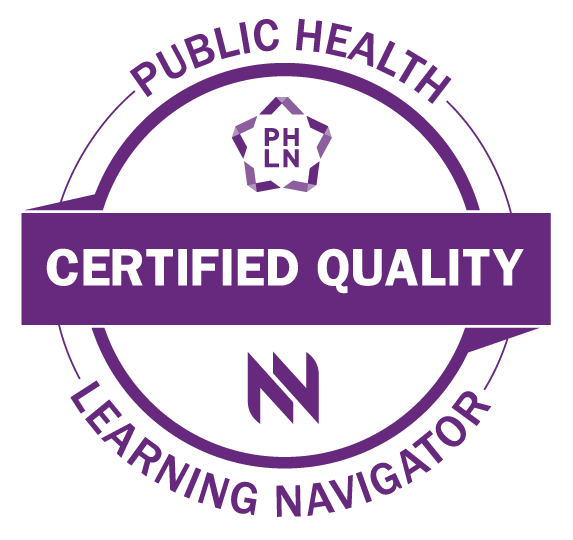This training includes a series of five modules. Take one module or complete all five to build your skills and confidence in budgeting and financial management. Designed with non-financial managers and nonprofit staff in mind, this training aims to increase financial literacy across an organization. Each module includes practical examples and is designed to increase your comfort in working with financial statements and budgets.
Series of 5 modules include:
1. Introductory Budgeting Terms and Concepts (15-20 min)
Learn budgeting terms and concepts, and review principles of financial management in preparation for planning, evaluating, and monitoring a budget.
2. Budget Planning (10-15 min)Increase your familiarity with components of a budget and approaches to budget planning. Explore practical examples for when changes in a budget are needed and consideration for justifying budget change recommendations. Explore the connection between how a program budget is planned with the goal of supporting the organization's mission, vision, and values.
3. Budget Implementation & Monitoring (10-15 min)Explore practical examples and key concepts related to implementing an approved budget and monitoring appropriately to stay "on budget." Practice communication strategies and approaches to analyzing departmental performance and trends.4. Budget Reporting: The Financial Statements (45-60 min)
This module is designed to build confidence and understanding in reading and interpreting key financial statements commonly used in public health organizations. You will explore the main components of three essential reports: the balance sheet, activity statement (also known as the statement of activities or income statement), and cash flow statement. You will gain familiarity with the structure and purpose of each statement, giving you the ability to make informed decisions, contribute to budget planning, and communicate financial information more effectively. Designed with non-financial managers and nonprofit staff in mind, this training aims to increase comfort with universal financial statements and improve financial literacy across the organization.
5. Excel as a Budgeting Tool (35-60 min)
This module presents common excel functions and formulas used for planning, monitoring, and reporting a program budget. Experiment with Excel spreadsheets to improve formatting and readability of a budget.
Format: Self-paced training (work at your own pace, use "save and exit" as needed). For embedded videos within the training, please enable captioning as desired.
Duration: ~2-3 hours
Arranged by: Allison Root, DrPH, MCHES, RDN
Subject Matter Expert: Christine L. Girard, ND, MPH
Narration: This training includes narration generated using AI voice technology (WellSaid Labs)
Target Audience: Public Health Professionals
Published: 9/2025
Disclosures: The planners, reviewers, and authors have no declared conflicts of interest.
CE Available (completion of all 5 modules):
- Continuing Education Contact Hours for Certified Health Education Specialists (CHES): This program is designated for Certified Health Education Specialists (CHES®) and/or Master Certified Health Education Specialists (MCHES®) to receive up to 3.0 total Category I continuing education contact hours (1.0 advanced). WRPHTC provider number 99036.
- Continuing Professional Education Units for Dietitians (CPEUs): As a Jointly Accredited Organization, the WRPHTC is approved to offer continuing professional education units by the Commission on Dietetic Registration. The WRPHTC designates this activity for 3.0 contact hours for dietitians. Dietitians should enter activities as type 102 on their Activity Log.
Accreditation Statements

The WRPHTC is jointly accredited by the Accreditation Council for Continuing Medical Education (ACCME), the Accreditation Council for Pharmacy Education (ACPE), and the American Nurses Credentialing Center (ANCC), to provide continuing education for the healthcare team through November 2025.

The WRPHTC is a Designated Multiple Event Provider of Continuing Education Contact Hours (CECH) for Certified Health Education Specialists (CHES) through the National Commission for Health Education Credentialing, Inc.

In this self-paced training, Daryl Melvin takes a broad approach to developing an understanding of how to create a budget and the key steps to apply in a budget process. The training is intended for all levels of program staff and uses narrative elements
with participants to discuss budgeting elements. It highlights that at the core of budget creation is an organization's mission and will assist participants in recognizing mission alignment and outcomes with budget creation.
Learning Objectives:
This training was developed to aid public health workers in understanding how to develop and monitor a program budget. After participating in this training, learners will be able to:
- Define a program budget and its function
- Distinguish the relationship between a program's mission and budget
- Identify the key steps in creating a program budget
Target Audience: Community Health Workers, Food System Workers
Continuing Education: 0.5 Category 1 Credits for CHES, 0.5 Continuing Competency Credits
Duration: 20 minutes
Format: web based/self study
Created/updated: 11/2017; 12/2019
Author and Presenter: Daryl Melvin


This blended learning series details the different
topics relating to Return on Investment. Join Dr. Patrick Bernet as he lectures
on topics ranging from Introduction to Cost Effectiveness to Creating a
Research Project and topics in between. The following is a specific list of
courses in this series.
- Introduction to Cost Effectiveness
- Working with Costs
- Principles of Cost-Effectiveness
Analysis
- Developing a Research Project
- Calculating Life Expectancy
- Health-Related Quality of Life Measures
- Calculating Quality Adjusted Life Years
(QALYs)
- Finding the Data You Need
- Probabilities and Models
- Working with Data
- Sensitivity Analysis
- Presentation and Reports
Learning Objectives:
- Provide learners with the tools to effectively train users on calculating return on investment topics
Target Audience: Allied Health Professionals, Biostaticians, Policy/ Planner, Researchers/ Analysts, Public Health
Tier(s) and Competency Domain(s): Tier Two – Financial Planning and Management Skills; Tier Three – Financial Planning and Management Skills
Duration: ~ 8 hours
Continuing Education Information: 8.0 CHES
Format: Web-based Training, Self-Study
Created/Updated: N/A
Author(s) and Presenter(s): Patrick Bernet, PhD

Do you want to improve your personal finances or help others improve theirs? This training will provide you with tools to create a personal budget and identify ways to improve your financial health. The training also provides information about health behavior theory as it relates to improving financial health and background information about financial health and stress. We also present ideas for incorporating budgeting trainings into public health programs.
Learning Objectives
1. Describe the negative effects of financial stress.
2. Apply health behavior theory to personal financial health.
3. Create a personal budget and identify ways to improve personal financial health.
4. List public health programs that may incorporate personal budgeting concepts as part of health promotion.
Continuing Education: 0.5 Category 1 Credits for CHES, 0.5 Continuing Competency Credits
Duration: ~30 min
Created/Updated: March 2020
Author: Allison Root, MS, RD

